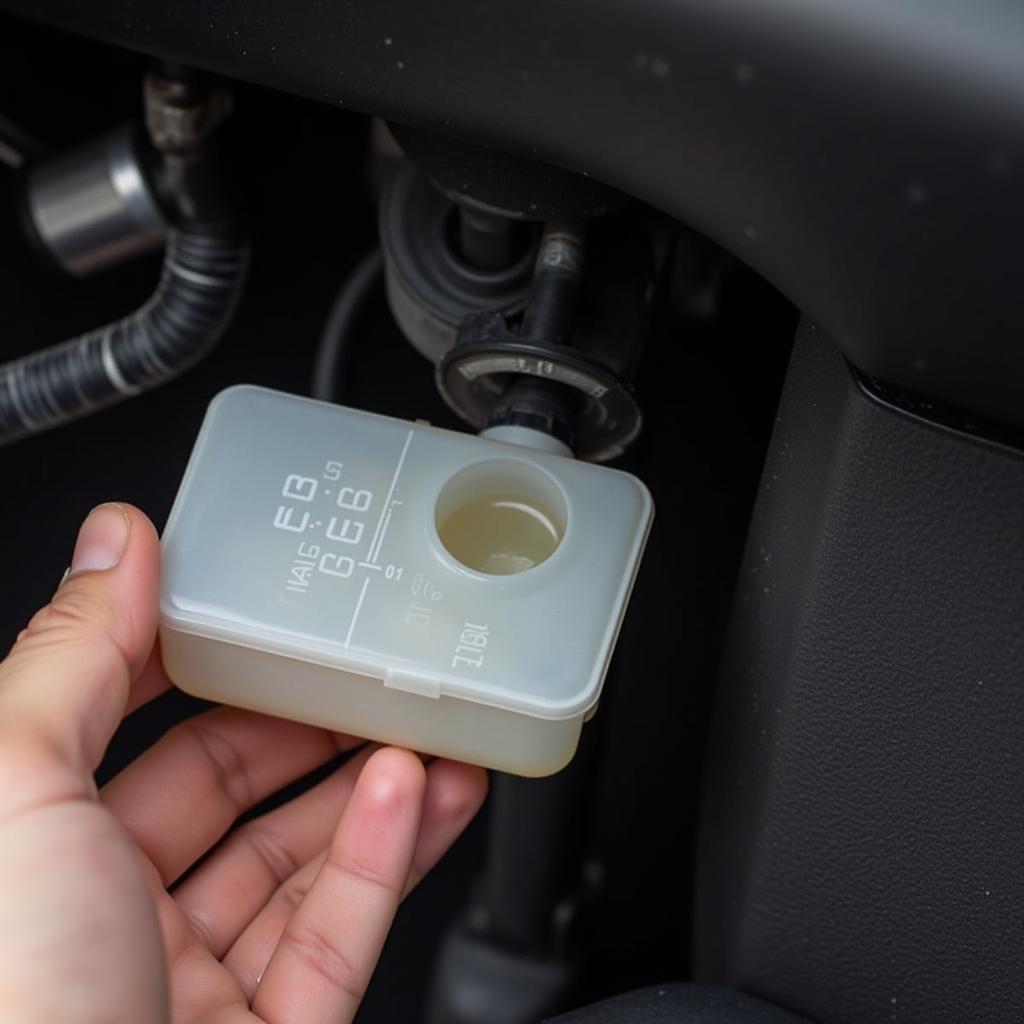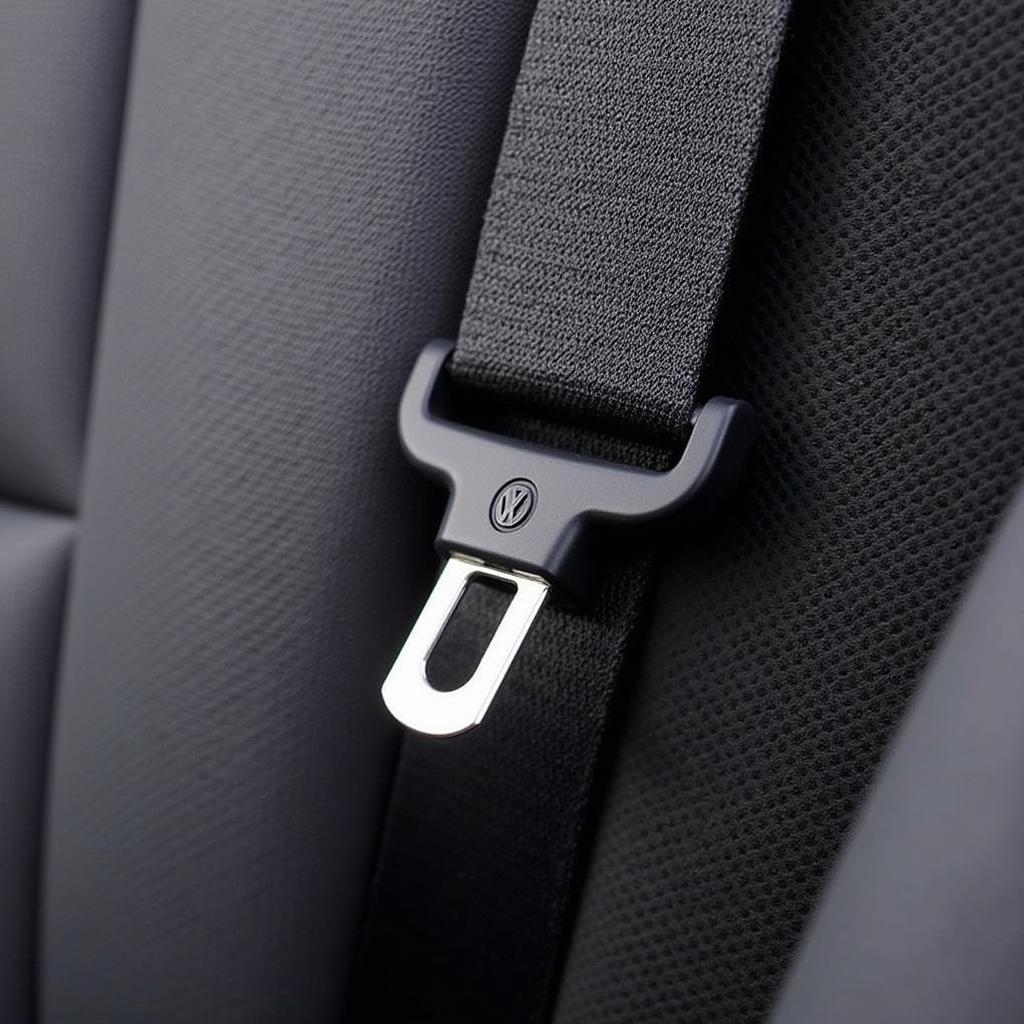An Audi ESP ABS warning light can be a scary sight, especially if you’re not sure what it means. This light indicates a problem with your vehicle’s Electronic Stability Program (ESP) or Anti-lock Braking System (ABS), both of which are crucial safety features. This article will guide you through understanding the potential causes of this warning light, how to diagnose the issue, and how to get your Audi back on the road safely.
Why Is My Audi ESP ABS Warning Light On?
The ESP ABS warning light could be triggered by several factors, ranging from a minor electrical issue to a more serious mechanical problem. Here are some common causes:
1. Low Brake Fluid: Your brake fluid level plays a vital role in the proper functioning of your ESP and ABS systems. If the fluid is low, it can cause pressure fluctuations that trigger the warning light.
2. Faulty Wheel Speed Sensor: Wheel speed sensors are essential for the ABS system to detect wheel slippage. A malfunctioning sensor can lead to inaccurate readings, causing the ESP ABS warning light to illuminate.
3. Problem with the ESP Control Module: The ESP control module is the brain of your ESP system. A faulty module can disrupt the system’s operation, leading to the warning light.
4. Electrical Malfunction: Loose wiring or a short circuit within the ESP or ABS system can also trigger the warning light.
5. Faulty ABS Hydraulic Unit: The ABS hydraulic unit is responsible for regulating brake pressure. A malfunctioning unit can cause various issues, including the warning light.
6. Brake System Components: Worn brake pads, rotors, or calipers can also affect the performance of the ABS system and trigger the warning light.
How to Diagnose the Audi ESP ABS Warning Light
1. Check Brake Fluid Level: Open your vehicle’s hood and locate the brake fluid reservoir. Ensure the fluid level is within the “full” mark on the reservoir. If it’s low, top it off with the appropriate brake fluid.
2. Scan for Diagnostic Trouble Codes (DTCs): Connect an OBD2 scanner to your vehicle’s diagnostic port. This will retrieve any DTCs stored in the system. DTCs provide valuable insight into the potential cause of the problem.
3. Inspect Wheel Speed Sensors: Locate the wheel speed sensors on each wheel (usually near the wheel hubs). Check for loose wiring, corrosion, or damage to the sensors.
4. Test the ESP and ABS Systems: With the engine running and your foot on the brake pedal, turn the steering wheel sharply in one direction. If the ESP system is working correctly, you should feel a slight resistance. Next, apply the brakes firmly while driving at a low speed. The ABS system should engage, causing a pulsing sensation in the brake pedal.
Troubleshooting the Audi ESP ABS Warning Light:
If you’ve identified the source of the problem, you can troubleshoot it. If you’re not comfortable with automotive repairs, it’s best to consult a professional mechanic.
For Low Brake Fluid:
- Top off the brake fluid reservoir with the correct type.
- If the fluid level continues to drop, check for leaks in the brake system.
For Faulty Wheel Speed Sensor:
- Clean the sensor and its wiring connectors.
- If cleaning doesn’t resolve the issue, the sensor may need replacement.
For ESP Control Module:
- Diagnose the module using a specialized diagnostic tool.
- If the module is faulty, it needs to be replaced.
For Electrical Malfunction:
- Inspect wiring for damage, loose connections, or short circuits.
- Repair or replace damaged wiring as necessary.
For Faulty ABS Hydraulic Unit:
- Diagnose the unit using a specialized diagnostic tool.
- If the unit is faulty, it needs to be replaced.
For Brake System Components:
- Inspect brake pads, rotors, and calipers for wear and tear.
- Replace any worn or damaged components.
Can I Reset the Audi ESP ABS Warning Light Myself?
In some cases, you might be able to reset the ESP ABS warning light yourself by using an OBD2 scanner. After addressing the underlying problem, you can attempt to clear the DTCs using the scanner. However, if the warning light returns, it’s best to consult a professional mechanic.
What to Do If You Can’t Fix the Problem Yourself
If you’ve attempted the above steps and the warning light persists, it’s time to seek professional help. An experienced Audi mechanic can diagnose the issue accurately and perform the necessary repairs.
Expert Insight:
“The ESP and ABS systems are critical for driver safety,” says John Smith, a certified Audi technician. “If you’re experiencing an ESP ABS warning light, it’s important to address the problem immediately. Ignoring it could lead to dangerous consequences.”
Audi ESP ABS Warning Light FAQs
Q: Can I safely drive my Audi with the ESP ABS warning light on?
- It’s generally not recommended to drive with the ESP ABS warning light on. These systems are essential for vehicle stability and safe braking. Driving with a malfunctioning ESP or ABS system can increase the risk of accidents.
Q: What is the difference between ESP and ABS?
- ESP (Electronic Stability Program) is a system that helps you maintain control of your vehicle during difficult driving conditions, such as slippery roads or sudden turns.
- ABS (Anti-lock Braking System) prevents your wheels from locking up during emergency braking, allowing you to maintain steering control.
Q: How much does it cost to repair an ESP ABS warning light?
- The cost of repair can vary depending on the underlying issue. It’s best to contact a qualified Audi mechanic for an accurate estimate.
Q: What should I do if the ESP ABS warning light comes on while I’m driving?
- If the warning light comes on while you’re driving, it’s best to pull over to a safe location as soon as possible. Avoid hard braking or turning, as these actions could further exacerbate the problem.
Q: Can I disable the ESP system in my Audi?
- Some Audi models allow you to temporarily disable the ESP system. However, it’s not recommended to do so unless you are absolutely sure of the safety implications.
Remember, the Audi ESP ABS warning light is there to alert you to a potential safety issue. By addressing the problem promptly, you can ensure your Audi remains safe and reliable.


